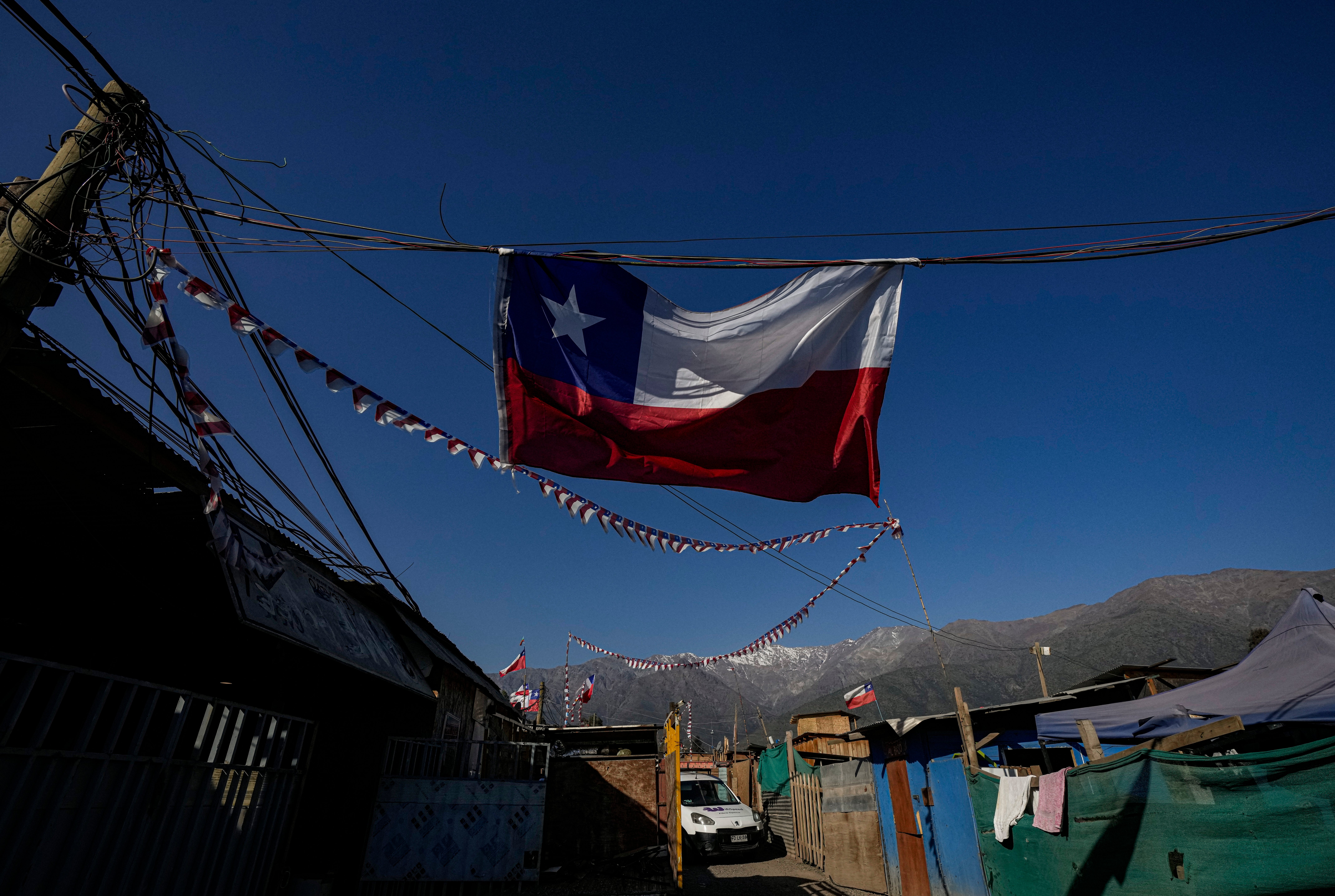In Chile, Haitians grow weary of waiting, eye journey to US
More than 100,000 Haitians in Chile are facing a Monday deadline to regularize their immigration status or risk expulsion

Your support helps us to tell the story
From reproductive rights to climate change to Big Tech, The Independent is on the ground when the story is developing. Whether it's investigating the financials of Elon Musk's pro-Trump PAC or producing our latest documentary, 'The A Word', which shines a light on the American women fighting for reproductive rights, we know how important it is to parse out the facts from the messaging.
At such a critical moment in US history, we need reporters on the ground. Your donation allows us to keep sending journalists to speak to both sides of the story.
The Independent is trusted by Americans across the entire political spectrum. And unlike many other quality news outlets, we choose not to lock Americans out of our reporting and analysis with paywalls. We believe quality journalism should be available to everyone, paid for by those who can afford it.
Your support makes all the difference.The 37-year-old Haitian says not a day goes by in which he doesn’t think of leaving Chile, like the multitudes who have grown frustrated and headed north toward the United States.
He feels caught in a vicious circle: He was laid off three months ago and can't get a new job without a valid identity card, but he can’t get his card renewed without an employment contract.
The government of President Sebastián Piñera has been tightening laws on migrants and Pierre — who declined to give his last name because he didn’t want to put his residency bid at risk — said it seems to be acting “so that we Haitians get tired of the country."
Tens of thousands of Haitians came to Chile in recent years, fleeing disasters and poverty while taking advantage of relaxed visa rules and a booming economy in Chile. But a tighter job market and newly imposed bureaucratic barriers have led many to seek better opportunities in the U.S., despite a crackdown that followed the appearance of a border camp holding more than 14,000 people in Del Rio Texas
Few appear inclined to head back to Haiti itself, where poverty and violence have grown even worse since they left.
More than 10,000 Haitians have been expelled from several countries to their homeland since Sept. 19 — more than 7,600 of those from the United States alone — according to the U.N.'s International Organization for Migration.
Thousands are still on the long road north — many stuck at migration bottlenecks in northern Colombia and southern Mexico.
Chile's government has granted permanent residence to almost 70,000 Haitians, but another 110,000 now lack official documents, according to Deputy Interior Minister Juan Francisco Galli.
Many had arrived on tourist visas before 2018, when Chile’s center-right government issued a decree requiring that Haitians to get a visa before traveling to Chile. In April, it enacted a new law that seeks to prevent the irregular entry of foreigners and makes expulsions easier.
“We are putting our house in order,” Piñera said.
The government has set a Monday deadline for them to regularize their status or face potential expulsion — though it hasn't specified what steps it will take. It already expelled several hundred migrants — including dozens of Haitians — on flights to their homelands.
Many, like Pierre, say it's impossible to comply. For example, Chile requires them to provide a document certifying a Haitian government background check — but it can take months at best to get such papers from the Caribbean nation's government.
Pierre, who is married and whose locally born daughter is a Chilean citizen, said he has been trying to update his residency permission for two years and is only about halfway through the process.
“I spent about four years working in a company and I am still irregular in the country,” he said.
Pierre lives in the Dignidad camp, southeast of the capital of Santiago in a cluster of small wooden houses along dirt streets devoid of greenery. He rarely leaves his tiny house, hoping someone he knows will come by to offer him temporary work.
He has a motorcycle parked outside, but can't use it because he does not have a driver’s license, which he cannot get without an identity card.
Magdaline Afred, a Haitian with permanent residence, says many of her compatriots left Chile because “they cannot work because they do not have papers.”
“It makes me very sad because many left (for the U.S.) with their children who were born here ... and now they are deporting Haitians with Chilean children,” she said.
Lyné Francois, a Haitian social worker and community leader, said, “There are people who have had their papers rejected two or three times and they are bored, desperate, exhausted and they are leaving."
“We think the government could make things easier, especially because of the earthquake, people don’t know what to do," she added, referring to a major earthquake that hit Haiti in August, causing further hardships there.
Carlo Richard, a Haitian auto mechanic who has resided in Chile since 2017, is one of thousands who live in fear of being expelled because his papers have been rejected several times. He said he has received four emails from immigration authorities telling him he faces expulsion and has 15 days to leave the country.
“What can I do? I can’t do anything, (just) hold on until there is a change in our country so that we can return,” he said.